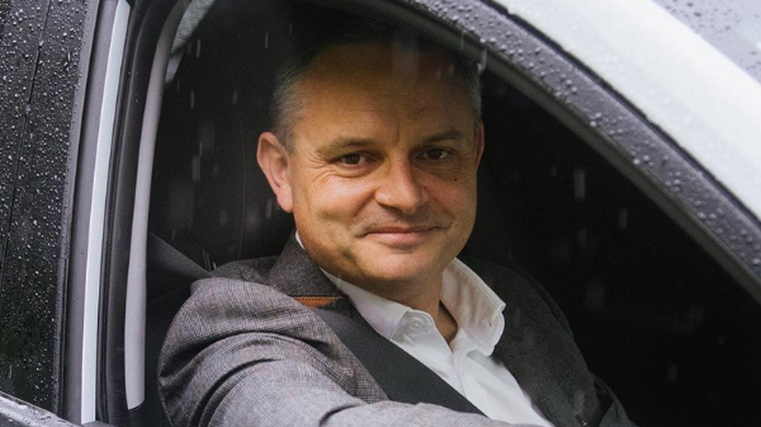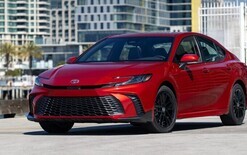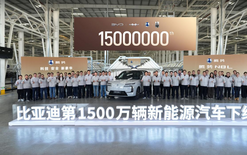$569m for clean car upgrades and scrappage

A clean car upgrade and a scrap-and-replace trial are among initiatives the government has unveiled in its emissions reduction plan (ERP).
James Shaw, the Minister of Climate Change, says New Zealanders will be supported to make the transition to low-emission alternatives through the two schemes via the climate-emergency response fund.
“The clean car discount scheme has been successful in supporting the uptake of electric and hybrid vehicles,” he says. “However, for many families, the cost of transitioning to cleaner vehicles can be too expensive.”
Starting with an initial trial of up to 2,500 vehicles, the clean car upgrade will provide targeted assistance to lower and middle-income households to shift to low-emission alternatives in exchange for scrapping their old vehicles.
Michael Wood, Minister of Transport, says: “Through supporting the uptake of cleaner vehicles, we are not only helping families do their bit for our planet, but also protecting them and our economy from future economic shocks and high fuel prices. This will also help safeguard New Zealand by reducing our dependency on fossil fuels.
Shaw, pictured, says the initiatives announced today are a critical part of the ERP that will put Aotearoa on the path to net zero.
“The package signifies a huge step in making sure people have clean, green, affordable ways of getting about,” he adds.
“We have long known there are some huge wins to be had in decarbonising our transport sector and it has formed a key part of the action we have taken to date – including the clean vehicle discount.
“These new initiatives are about making it much easier for New Zealanders to make zero or low-emission transport choices, be they safer walking and cycling options, better public transport or more affordable electric vehicles [EVs].
“Just like many other aspects of the ERP, tackling climate change by reducing transport emissions comes with the happy coincidence of making people’s lives better.
“Families who trade in vehicles will receive support for the purchase of EVs, PHEVs [plug-in hybrids] and hybrids.
“By taking advantage of the clean car upgrade, families will not only benefit from lower transport costs, but will also be able to replace high-emitting older vehicles with safe and sustainable alternatives.
“Switching to a low or zero-emissions vehicle will reduce costs for families in the long term due to their lower running costs. For EVs charged at home, during off-peak hours the cost would be equivalent to buying petrol at around 40c/litre.”
Shaw says a similar scheme in the US has seen more than 10,000 Californians scrap their “old, dirty cars” and replace them with cleaner alternatives, such as new and used zero-emissions, plug-in hybrid and hybrid cars.
“For some families owning a vehicle is a luxury, which is why we’re also trialling a social-leasing scheme that will support low-income families to lease a safe, low-emission vehicle from a community organisation,” says Shaw.
This trial is expected to operate from early 2023 in three communities to test its effectiveness across New Zealand.
The aim of this is to “provide a leg-up” to those who wouldn’t otherwise be able to afford to shift to a low-emissions vehicle and help them reduce their living costs.
These initiatives are part of a wider budget 2022 package, which is supporting the transport sector to take a leading role in New Zealand’s efforts to tackle climate change following the release of the government’s first ERP.
Wood adds: “Transport is one of our largest sources of emissions and accounts for 17 per cent or one-sixth of total greenhouse gas emissions. Equally, it’s an area where Kiwis can make a difference immediately and today’s announcement is about giving people that chance to change the way they travel.
“Every positive change in habit helps us as a nation move a step closer to achieving our required carbon reductions.
“That’s why we are investing $1.2 billion into the transport sector as part of the climate-emergency response fund package to support people to move to public transport, increase walking and cycling, accelerate the uptake of cleaner vehicles with a focus on equity and decarbonise our freight system.
“This is expected to reduce carbon emissions equivalent to taking 181,000 cars off the road between now and 2035.
“The package includes $350 million to support Kiwis to make cleaner transport choices. With this investment, we are able to fund the rapid roll-out of at least 100km of safe urban cycleways to build more connected networks at pace, create significant safety improvements in around 25 pedestrian areas, and support safer, greener, and healthier travel to 75-100 schools.
“This investment will also help to make public transport easier to use through bus-priority improvements in more than 40 locations alongside improvements to shelter, access, and customer information at up to 500 stops and stations.
“There is strong public support in our biggest cities to move quickly on opening up streets for safe walking and cycleways and improving the frequency and reliability of public transport services.
“This helps to unclog our streets, allowing goods and services to move around more efficiently, supporting greater productivity and building our country’s economic prosperity.
“Investment in green-transport options is a triple win for climate action. It reduces congestion, promotes a healthy, active lifestyle and clears up the air. As we saw with our investment in the Northern Busway [from Auckland’s North Shore to the CBD], when we build transport infrastructure that works, people use it.
“This investment builds on the government’s record investment into transport services and infrastructure, including over $6b in public transport and walking and cycling, and local road and state highway maintenance, to connect communities, ensure the reliable movement of freight and improve resilience across the country.
“We know that it will take time to reduce our transport emissions, but today is a meaningful step forward that will result in real change.
Funding levels
The initiatives funded by the climate emergency response fund in budget 2022 include:
$569m for the clean car upgrade, an equity-orientated pilot and roll-out of a scrap-and-replace scheme.
$350m to fund transport choices and services, and infrastructure investments, that reduce reliance on cars and support uptake of active and shared modes. Investment areas will include rapidly rolling out urban cycleway networks, creating walkable neighbourhoods, supporting safer, greener and healthier school travel, and making public transport more accessible and easier to use.
$20m for a vehicle social-leasing scheme trial, which will lease low-emissions vehicles to low-income Kiwis to make it more affordable to transition to cleaner options.
$23m to develop ambitious national and urban programmes to support a step-change in people shifting to active and shared mode to reduce kilometres travelled in our largest cities.
$61m to support a sustainable, skilled workforce of bus drivers.
$40m over four years to accelerate the decarbonisation of the public-transport bus fleet to enable providers to start working towards the government decarbonising that fleet by 2035.
$20m to accelerate the decarbonisation of freight transport. This includes co-funding for low-emissions freight projects through a dedicated round of the Low Emissions Transport Fund delivered by the Energy Efficiency and Conservation Authority, and funding the Ministry of Transport’s development of decarbonisation aspects of the national freight and supply-chain strategy and other freight-related actions in the ERP.





